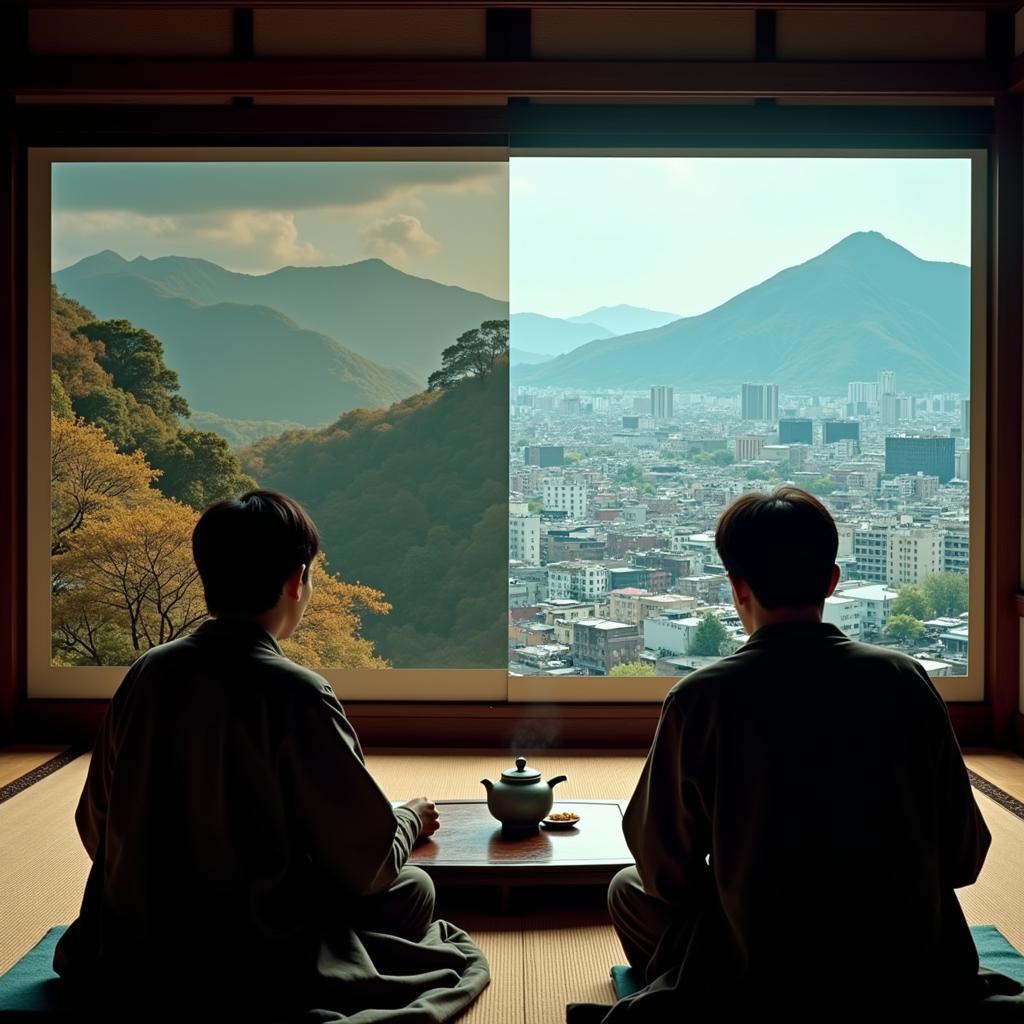The allure of “Invitation Girl Korean Movie” as a search term speaks volumes about viewer interest in a complex and often misunderstood aspect of Korean cinema. These films, which often delve into themes of power, desire, and societal expectations, attract viewers with their compelling narratives and often controversial subject matter. This exploration delves into the nuances of this genre, examining its recurring motifs, cultural context, and impact on both domestic and international audiences.
Understanding the “Invitation Girl” Trope in Korean Cinema
What Does “Invitation Girl” Actually Mean?
The term “invitation girl” itself carries a significant weight, often implying a level of transactional relationship within the context of Korean cinema. However, it’s crucial to understand that the depiction of these characters is not monolithic. While some films may portray them as victims of circumstance, others showcase them as individuals exercising agency and navigating a complex social landscape.
- Power Dynamics: “Invitation girl” films frequently explore power dynamics between men and women, often highlighting the societal pressures faced by female characters.
- Economic Disparity: The theme of economic disparity often plays a central role, with some characters choosing this path due to financial constraints or societal pressures.
- Moral Ambiguity: These films rarely shy away from moral ambiguity, presenting characters who are neither purely virtuous nor purely villainous. This complexity adds depth to the narratives and invites viewers to grapple with challenging ethical questions.
It’s important to distinguish between exploitation and exploration. While some films may sensationalize the subject matter, others utilize the “invitation girl” trope as a lens through which to examine broader societal issues.
The Cultural Context of “Invitation Girl” Korean Movies
Understanding the cultural context is essential for appreciating the nuances of these films. Korean society, with its deeply ingrained patriarchal traditions and rapidly changing economic landscape, provides a fertile ground for stories exploring themes of gender, class, and social mobility.
- Confucian Values: The influence of Confucian values on Korean society often manifests in these films, highlighting the expectations placed on women within the family and society.
- Modernization and its Impact: The rapid modernization of South Korea has led to significant social and economic changes, creating new opportunities while simultaneously exacerbating existing inequalities. These tensions are often reflected in the narratives of “invitation girl” films.
- Changing Gender Roles: While traditional gender roles remain prevalent in Korean society, there’s a growing movement towards greater gender equality. “Invitation girl” films often reflect this ongoing dialogue, portraying female characters who challenge traditional expectations and carve their own paths.
 Cultural Context of Korean Cinema
Cultural Context of Korean Cinema
Beyond the Stereotype: Humanizing the “Invitation Girl”
While the term “invitation girl” may conjure up certain preconceived notions, it’s important to remember that these films often strive to humanize the characters, showcasing their vulnerabilities, aspirations, and inner struggles.
- Challenging Stigma: Some films actively challenge the stigma associated with sex work, portraying these characters with empathy and nuance.
- Exploring Agency: Instead of presenting them solely as victims, many films emphasize the agency of “invitation girls,” showcasing their ability to make choices and navigate challenging circumstances.
- Giving Voice to the Marginalized: These films can provide a platform for the stories of marginalized women, giving voice to experiences that are often overlooked or silenced.
Finding Authentic “Invitation Girl” Korean Movies on Movie USA Full HD
Movie USA Full HD offers a wide selection of Korean films, allowing you to delve into this complex and fascinating genre. Remember to approach these films with an open mind and a willingness to engage with the nuanced narratives they present.
In conclusion, the “invitation girl korean movie” genre offers a unique window into Korean society, exploring themes of gender, power, and social change. By understanding the cultural context and appreciating the complexities of these characters, viewers can gain a deeper appreciation for the artistry and social commentary embedded within these films.
FAQ
- Are “invitation girl” movies always explicit? No, not all films in this category are explicitly graphic. Many focus on the emotional and social aspects of the characters’ lives.
- Where can I watch these movies legally? Movie USA Full HD offers a curated selection of Korean films, ensuring a legal and high-quality viewing experience.
- Are these movies suitable for all audiences? No, due to the mature themes often explored, these films are generally recommended for adult audiences.
- What are some other similar themes explored in Korean cinema? Other related themes include social inequality, political corruption, and family dynamics.
- Do these films offer English subtitles? Yes, Movie USA Full HD provides English subtitles for its Korean film selection.
- Are there any critically acclaimed films in this genre? Yes, several films have received critical acclaim for their nuanced portrayals and thought-provoking narratives.
- What is the cultural significance of these films? These films offer insights into the evolving social landscape and changing gender dynamics in South Korea.
Need Help?
When you need assistance, please contact us: Phone: 02933444567, Email: nanathemovies@gmail.com Or visit us at: RF55+W7R, Lê Hồng Phong, Vị Tân, Vị Thanh, Hậu Giang, Việt Nam. We have a 24/7 customer service team.
